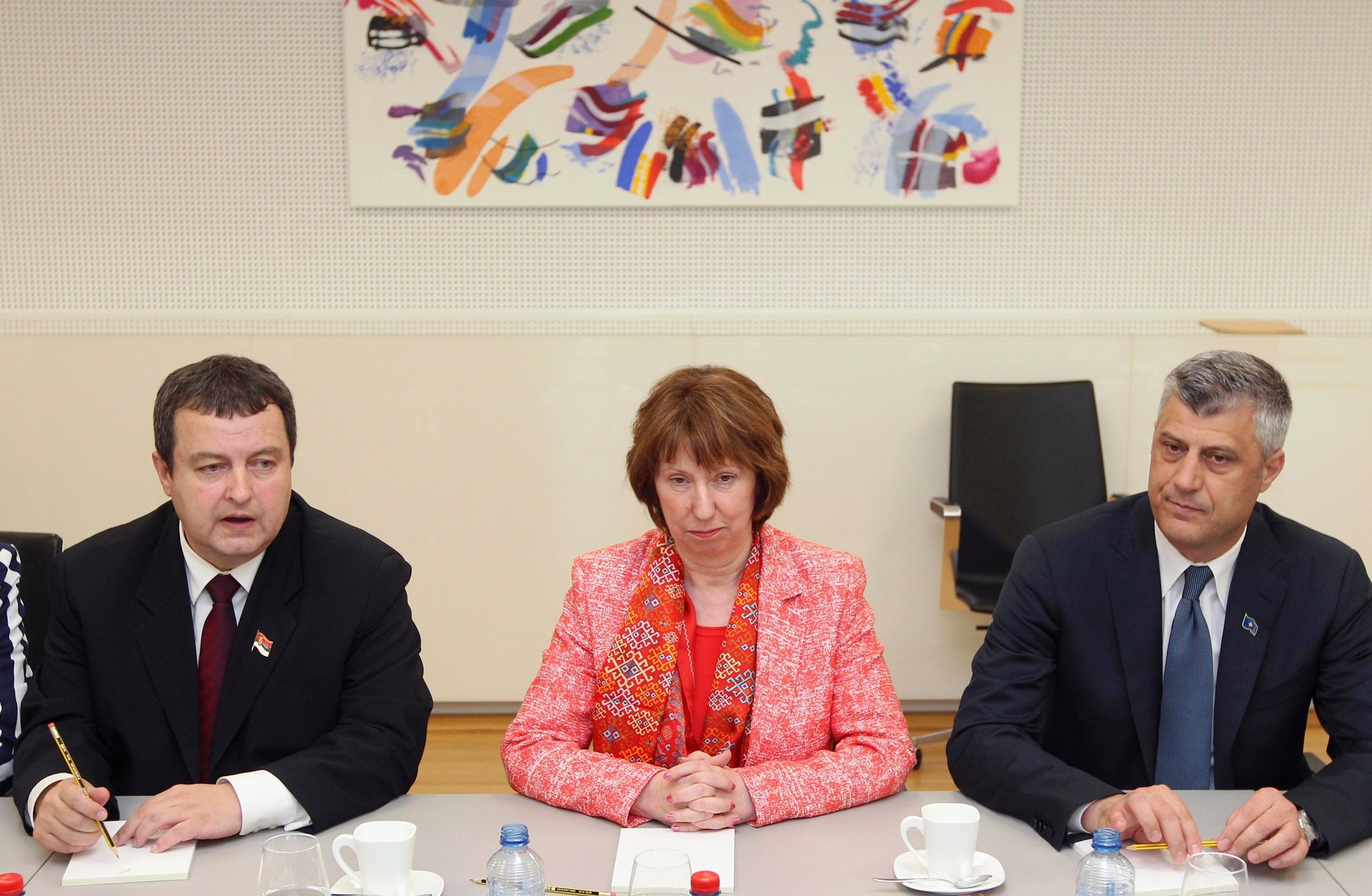Kosovo – is the EU turning status neutral?
After seeking since 2008 to support the imposition of Pristina’s rule in north Kosovo, the EU may now be shifting to a more status-neutral approach. The devil will be in the details and much will depend on whether the US goes along.
Suggested Reading |
Collaborative Conflict Transformation |
Analysis and Insight |
By Gerard Gallucci
Over recent days, coincident with the beginning of the Belgrade-Pristina dialogue, the EU seems to have shifted its approach on Kosovo. It may now look at these discussions as a way to put aside the issue of the north in a status neutral manner that would avoid either violence or outright partition. Two pieces of evidence suggest this change.
First, Brussels seems ready to split the two jobs now held by Dutchman, Pieter Feith – EU Special Representative (EUSR) and International Community Representative (ICR) – into two different positions held by two different people. Feith’s appointment as EUSR ends soon. Press reports suggest that the EU will appoint a temporary EUSR while it seeks to consolidate its various Kosovo efforts under a new single chief. Feith would remain as ICR and therefore responsible mainly to the Quint countries that oversee Kosovo’s independence. But, presumably, he would no longer be in the chain of command for the EU Rule of Law Mission (EULEX), headed by former French General, Xavier de Marnhac.
EULEX, given the UN mandate for rule of law in November 2008, was supposed to act in a status neutral manner as called for under UNSCR 1244. But until now, it has backed efforts to impose Kosovo institutions on the Serb-majority north. It supported the so-called “northern strategy” – drafted by Feith’s office – to introduce Kosovo-Albanian customs, courts and police into the north while pushing aside the UN. EULEX (and KFOR) also provided protection for unilateral Albanian efforts to “return” to sensitive areas in north Mitrovica near Serb neighborhoods. Freeing the EUSR from seeking to impose Kosovo independence on the northern Serbs means EULEX may now be more likely to carry out its peacekeeping duties in a neutral fashion.
Second, EULEX now says it is not its responsibility to impose Kosovo courts in the north. De Marnhac – a pragmatist who served as NATO commander in Kosovo and in the north – recently signaled the new approach by noting that the court was a political issue and would be resolved through the Belgrade-Pristina dialogue. EULEX would limit itself to continued work by international judges in the northern court. Presumably, this means EULEX also would not force Kosovo Albanian customs into the north or support other Albanian efforts to provoke conflicts there. We’ll see.
In all, it seems that the EU – divided itself over Kosovo independence – may have finally broken from the more aggressive approach pushed by the Americans and Albanians. The US may still be seeking to erode northern Serb resistance through unilateral actions of its own, such as imposing USAID projects against local opposition, and supporting continued Albanian provocations. For their part, the Albanians are increasingly critical of EULEX and threatening to impose their own “northern strategy.” They are also seeking to nationalize Trepca – the giant mineral and mining conglomerate that includes core elements in the north. Nationalization of Trepca would almost certainly lead to its “partition.”
However, imposing Pristina on the north and gaining international recognition of Kosovo independence have not gone as the Quint hoped. Brussels may now be ready to support a series of outcomes – first on the “easy” issues such as telecoms, electricity, ID documents, land registries and license plates – that offer Belgrade status neutral compromises. Both parties have asked the EU facilitator to help them close the gaps on issues discussed so far. But the Americans will have to come around to support compromise too. If not, the Albanians may continue to hold out for everything and look for reasons to end the discussions.
Gerard M. Gallucci is a retired US diplomat and UN peacekeeper. He worked as part of US efforts to resolve the conflicts in Angola, South Africa and Sudan and as Director for Inter-American Affairs at the National Security Council. He served as UN Regional Representative in Mitrovica, Kosovo from July 2005 until October 2008 and as Chief of Staff for the UN mission in East Timor from November 2008 until June 2010. He is currently an adjunct professor at the University of Pittsburgh. Gerard is also a member of TransConflict’s advisory board. The views expressed in this piece are his own and do not represent the position of any organization.
To read other articles by Gerard for TransConflict, please click here.
To keep up-to-date with the work of TransConflict, please click here. If you are interested in supporting the work of TransConflict, please click here.


















